5 lessons to learn from case competitions
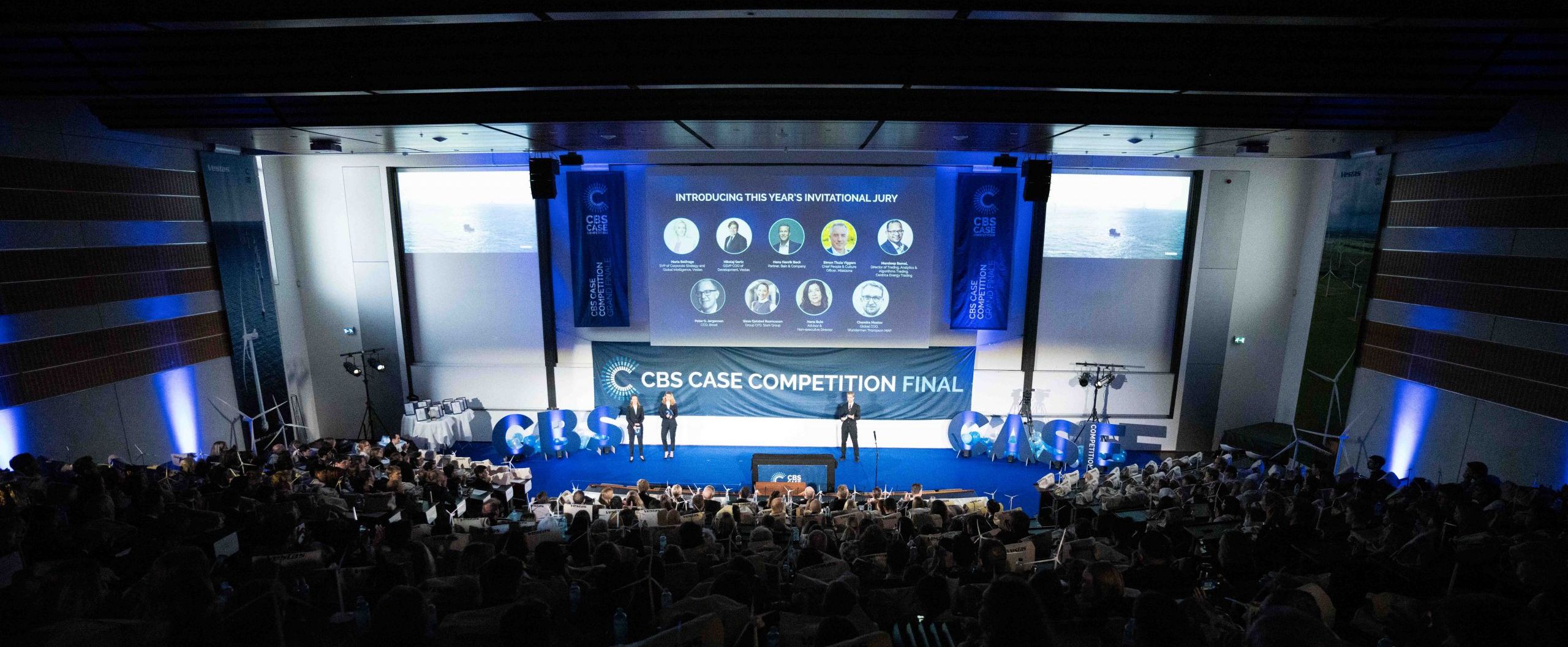
More than 3,800 participants from 88 countries took part in the 2023 CBS Case Competition in February/March. Photo: Peter Møller
Even if competing in case competitions is not your passion, you can still learn a lot about case solving for university or as part of a recruitment process.
Cases have become increasingly popular in recent years, both in education and recruitment. If you haven’t worked with them before or want to improve your case-solving skills, CBS WIRE has some useful advice from Janie Huus Tange, coach of the International Case Competition Team at CBS, and Robin Lunding Sandqvist, master’s student in Finance and Strategic Management and member of the steering committee (co-presidency) of this year’s CBS Case competition. They highlight five crucial points.
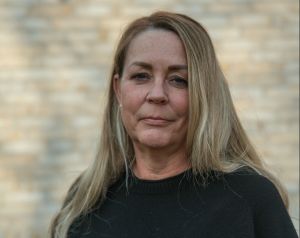
Janie Huus Tange. Photo: Louise Neupert
1) Understand the company behind the case
“A very important part of solving a case is listening to what the company’s problem actually is and not assuming that you know what it is. It’s no real art coming up with an idea; ChatGPT can do that. What truly brings value is that you understand what you are trying to solve, and that your idea is ambitious, yet implementable,” Janie Huus Tange says.
Large case competitions, such as the CBS Case Competition, use real business cases with company representatives are on the juries. In 2023, the cases CBS featured the large Danish energy company Ørsted in the global competition and global wind turbine company Vestas in the invitational competition.
“The problems were real issues that the companies were facing at that time, as we wanted to make it as authentic as possible,” says Robin Lunding Sandqvist.
2) Use your time efficiently
When solving a case, naturally, you must use whatever time you have as efficiently as possible. As Janie Huus Tange explains, that means moving quickly within the given time frame, even though you would have liked to dive deeper.
“With shorter cases, the art is to get moving and be confident that your knowledge will allow you to work it out without spending that much time on each step,” she says.

Robin Lunding Sandqvist. Photo: Peter Møller
3) Nervousness can be tackled by practicing
You can absolutely do case competitions even though you are feeling nervous about standing in front of an audience, but when Janie Huus Tange picks participants for the International Case Team, she prioritises finding people who do not become too anxious. And – they still practice a lot to combat nerves.
“Preparation, practice and support are crucial for preventing nerves. I also think students in competition teams should like and trust each other,” she says.
Robin Lunding Sandqvist has been a member of CBS’s International Case Team himself. He focused on trying to act as naturally as possible on stage.
“If you are nervous on stage, you tend to become very corporate-like, and I know that acting more naturally will help you perform better,” he says.
4) Practice your pitch
When working on a case for a competition or university, presentation is also key. According to Janie Huus Tange, it must be varied but to the point. Her best advice for practising is to record yourself on your mobile phone and then analyse the recording.
“Was I speaking too fast? Too slow? Mumbling too much? And then practice repeatedly. When you feel confident, do it in front of an audience of friends and family before having to give the pitch in front of a jury or lecturer and examiner,” she says.
For specific advice on creating a good pitch, she recommends looking on YouTube, where you can find a range of videos on the topic.
5) Acknowledge your personality traits
When Janie Huus Tange picks students for the International Case Team, she looks for students who are “curious, brave, fearless and eager to meet others”.
She has no specific professional requirements but tries to select at least one who is tech savvy, and one with strong finance skills. All of them must be strong in marketing and branding. And then she considers the students’ different personality traits:
“I need both someone who can play the Devil’s Advocate and someone who can have a thousand ideas an hour. The more diverse the team, the better they perform: Unless they fall out because of their differences. But we work through that in the training sessions,” she smiles.
She explains that the students must know themselves if the group is to work as well as possible.
“There are tons of personality tests online and they can give you a good indicator of who you are: Are you introverted or extroverted? Do you make decisions based on emotions or data? Work with details or see the big picture? It is important to create a language in a group where you can talk about your differences and use them to your advantage,” she says.

This year’s winners in the global competition. Photo: Peter Møller



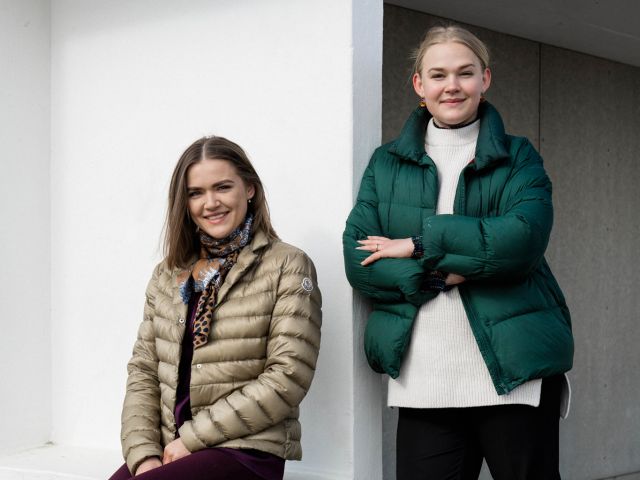
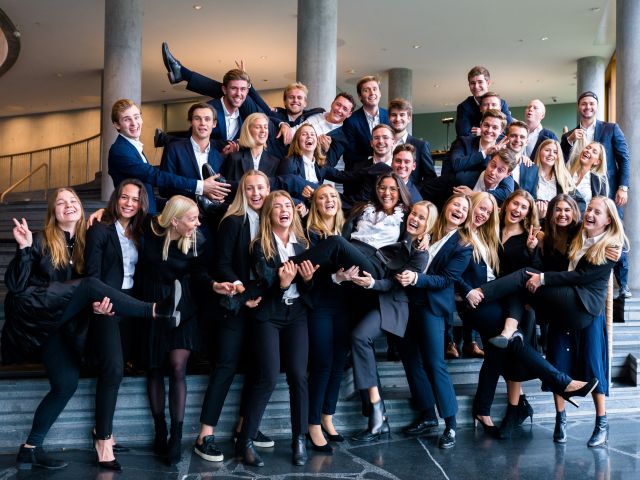
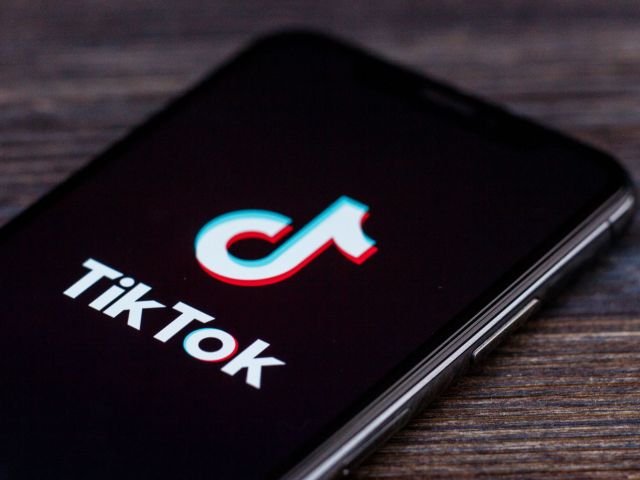
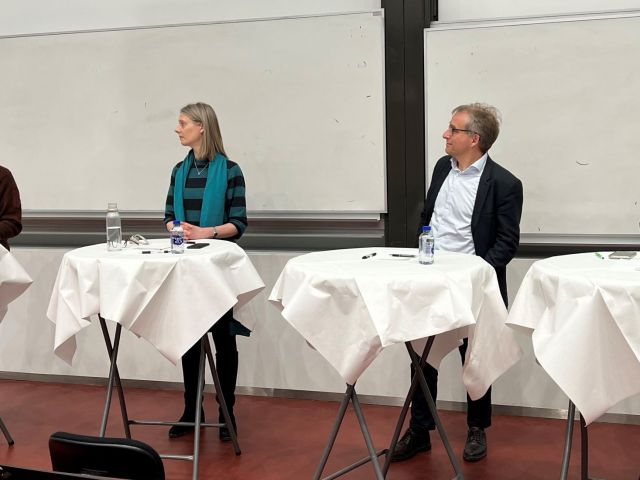




























































































































Comments